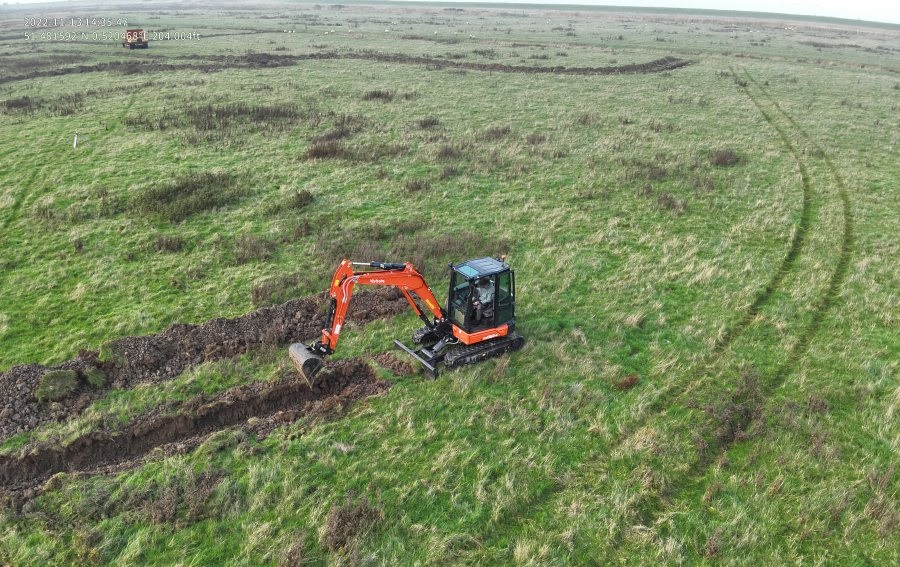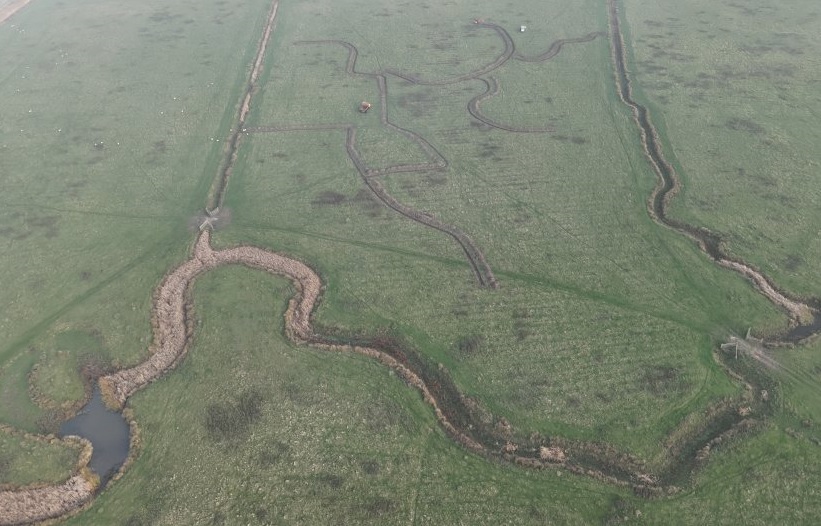
A Kent farmer has set about creating 80 hectares of new wetland habitat on his farm, delivering conservation benefits across the wider Thames Estuary and Marshes.
As a wetland of international importance, the Thames Estuary and Marshes Special Protection Area (SPA) comprises a mosaic of habitats offering wintering and breeding grounds for important wetland bird species.
With evidence suggesting that this habitat is threatened by water supply issues and species disturbance through public access, local farmer Alex Bates decided to help conserve it.
He is restoring 80 hectares of lowland wet grassland on his farm, with the help of conservation charity RSPB and local ecological consultants Ecological Planning and Research (EPR).
Where once there was dry parched land, the new wetland will retain winter rainfall to ensure water levels remain higher into the spring and summer.
As well as directly benefiting breeding wading birds and other wildlife, Mr Bates’ wetland will contribute to conservation action in nearby nature reserves, providing a safe site, free from public disturbance.
The conservation work undertaken focuses on the one principle of slowing water flow, holding back water, and improving natural floodplains in heavily drained landscapes.

To help achieve this, Mr Bates will use natural materials placed in strategic locations to create perched wetland systems.
It is hoped that this increased water retention will create breeding habitat for lapwing, redshank, avocet, and other breeding waders.
Mr Bates said: “Given the impacts of the recent summer on our natural environments, it’s very important that we have biodiversity hotspots not just in protected areas but also on private land as well.
“I’m proud to be making a difference with Cliffe and Cooling Farm wetlands and the teams at EPR and RSPB have been incredibly supportive in my journey to date.”
Julian Nash, senior site manager at RSPB, said nature-friendly farming had a vital role to play in tackling the biodiversity and climate crisis.
"It’s fantastic to see local farmers like Alex use their land to make a difference to nature’s recovery."
